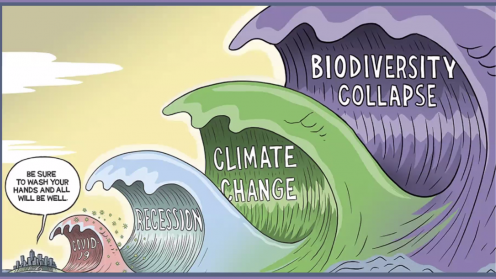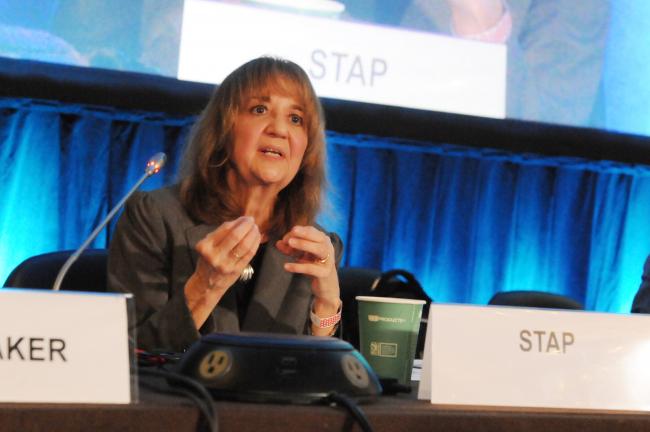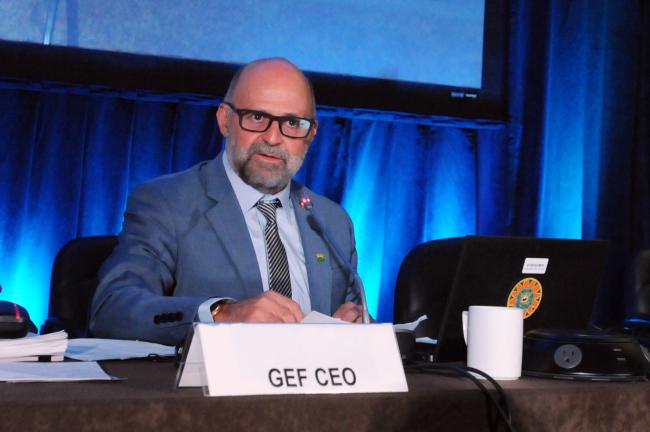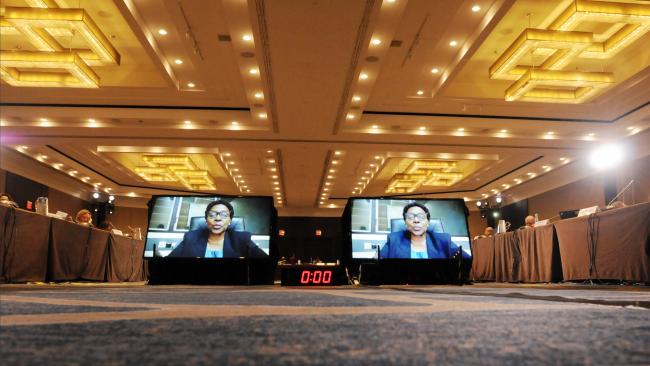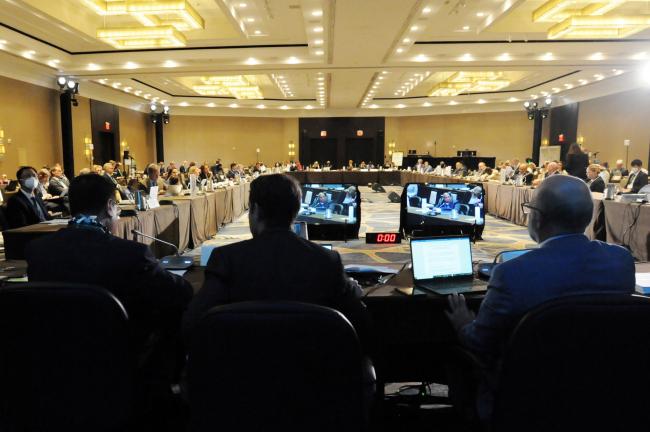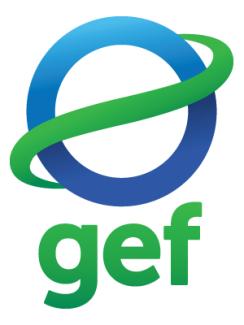GEF Council Members discussed inputs by the Scientific and Technical Advisory Panel (STAP) to guide and evaluate GEF project implementation, kicking off the second day of the 62nd meeting of the Council. The Executive Secretaries of several of the multilateral environmental agreements for which the GEF serves as a financial mechanism discussed funding priorities for the conventions. At the conclusion of the day, Council Members were briefed on preparations for the seventh meeting of the GEF Assembly.
At the opening of the day, Rosina Bierbaum, STAP Chair, provided an overview of scientific developments related to the GEF-8 agenda, explaining that we have now transgressed six planetary boundaries, including climate change, biogeochemical flows, biosphere integrity, land system change, novel entities (toxics and plastics), and green water. She called attention to the “transformation/risk/innovation trio,” saying transformational change will require innovation, which can entail risks.
Among other conclusions from the nine new papers prepared by STAP, Bierbaum noted that policy coherence creates synergies, helps manage trade-offs, avoids damaging behaviors, and ensures global environmental benefits are not undermined by misaligned policies. She highlighted many possibilities for future work, including a report for the GEF Assembly focusing on the transformation/risk/innovation trio, developing a training course on the theory of change and multi-stakeholder dialogues, and developing a data and knowledge management platform on mercury.
Carlos Manuel Rodríguez, GEF CEO and Chairperson, opened the discussion on relations with the conventions, recalling that he had recently attended the meetings of the Conferences of the Parties to the Minamata Convention on Mercury, the UN Convention to Combat Desertification (UNCCD), and the Basel, Rotterdam and Stockholm (BRS) Conventions, and highlighting the upcoming meetings of the Conferences of the Parties to the Convention on Biological Diversity (CBD) and the UN Framework Convention on Climate Change (UNFCCC). He called for more integration across the conventions and noted the opportunity that a focus on the topic of nature provides in this regard.
In her final address to the GEF as UNFCCC Executive Secretary, Patricia Espinosa highlighted that the GEF-8 replenishment negotiation outcomes point to the GEF’s role as a key financial source for climate action and sustainable development.
Elizabeth Maruma Mrema, CBD Executive Secretary, highlighted that GEF-8 has substantially increased the funding for biodiversity. She noted that the GEF is supporting early action grants for national planning in response to the post-2020 global biodiversity framework. She added that this activity seeks to promote early national planning with an eye towards the successful adoption of the new biodiversity framework and to jumpstart its implementation.
Rolph Payet, BRS Executive Secretary, said the Secretariat is putting together a strategy to achieve the “maximum possible elimination” of PCBs by the upcoming 2025 and 2028 deadlines, and called for exploring how to leverage the GEF-8 replenishment in support of this goal. He said priority areas of work include PCBs, newly listed persistent organic pollutants (POPs), stockpiles of obsolete POPs, unintentionally produced POPs, and national implementation plans.
Monika Stankiewicz, Executive Secretary of the Minamata Convention, underscored that compliance-related challenges are mounting for developing countries, and said the GEF-8 allocation will be spent in its entirety. She noted that parties agreed on the terms of reference for the second review of the financial mechanism, which she said would allow parties to make any necessary adjustments.
UNCCD Deputy Executive Secretary Andrea Meza Murillo reviewed that Convention’s recent COP 15 outcomes and welcomed the GEF-8 replenishment and increased flexibility for countries to allocate resources across focal areas. She highlighted the need for pre-project support and financial requirements to promote implementation of land degradation neutrality targets.
The Council also discussed GEF support to sustainable forest management, the report of the Ad-Hoc Working Group on Governance, and preparations for the seventh meeting of the GEF Assembly, which is expected to take place in Vancouver, Canada, in mid-2023.
To receive free coverage of global environmental events delivered to your inbox, subscribe to the ENB Update newsletter.
All ENB photos are free to use with attribution. For photos from GEF Council 62, please use: Photo by IISD/ENB | Diego Noguera.
